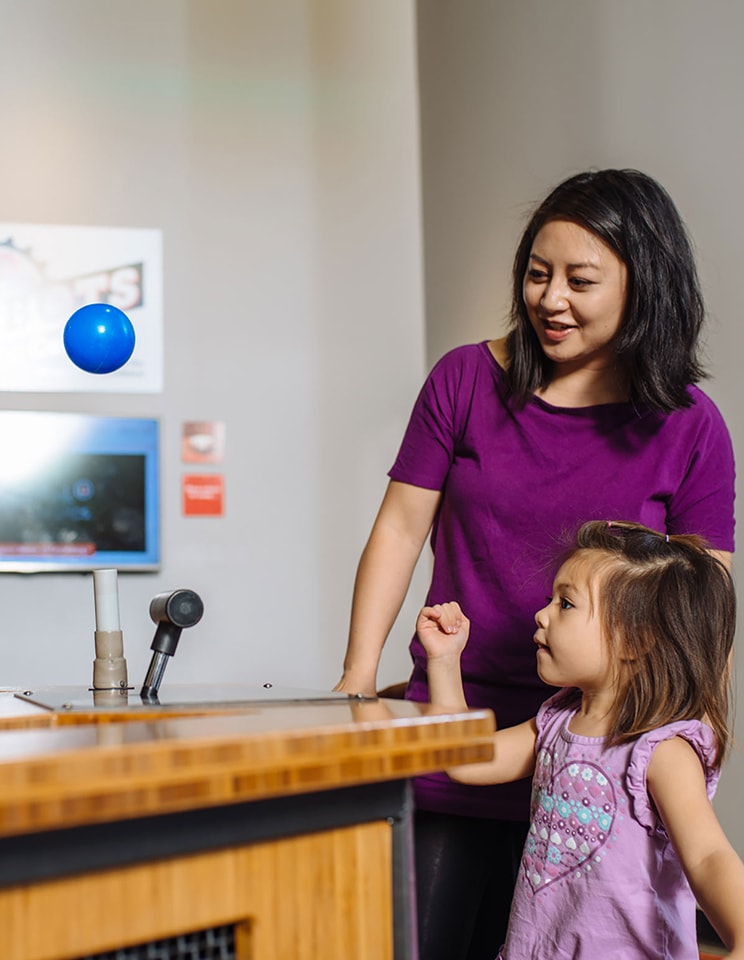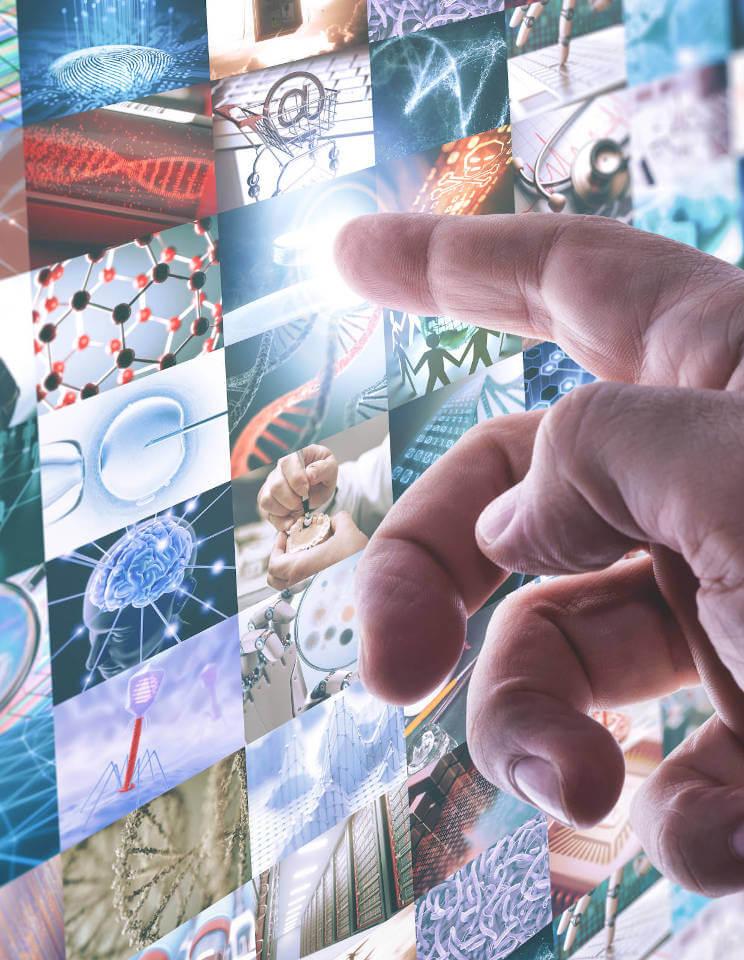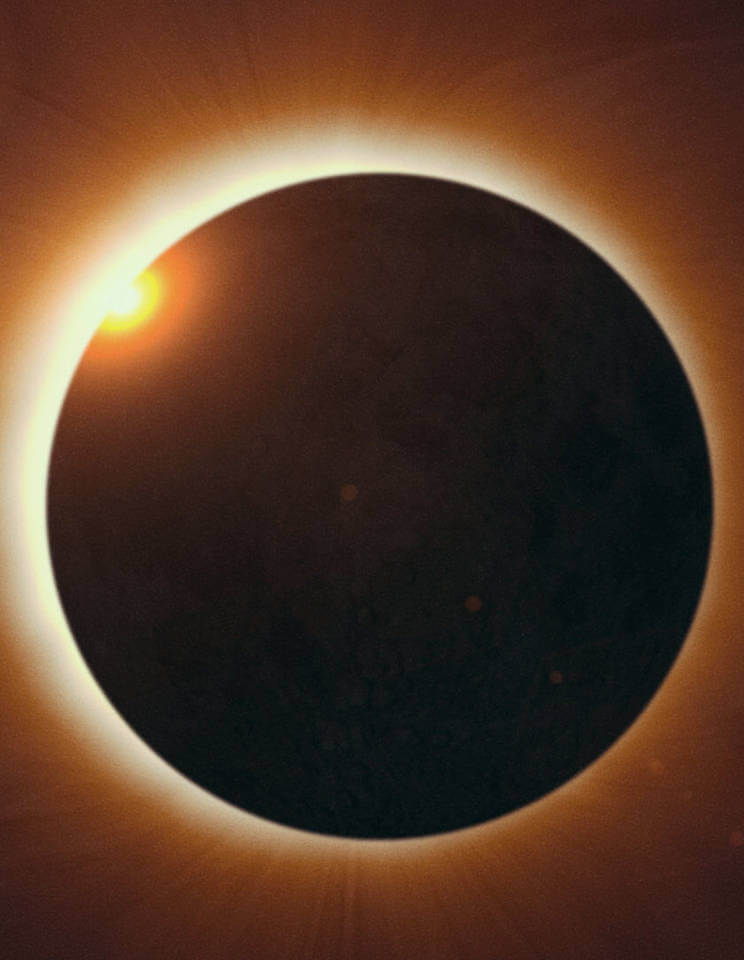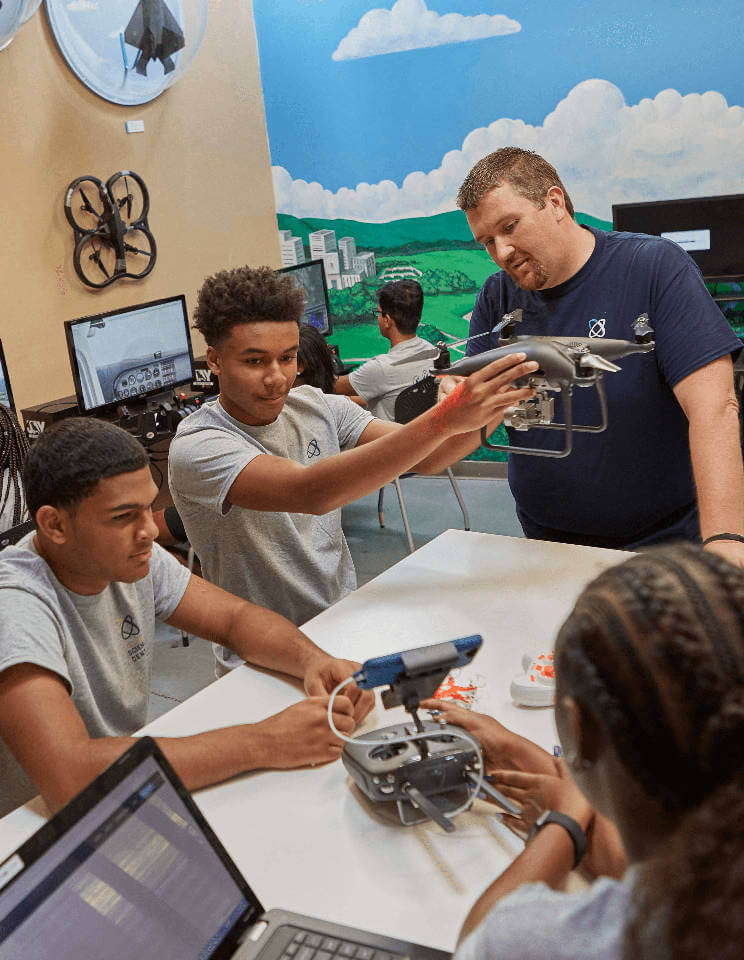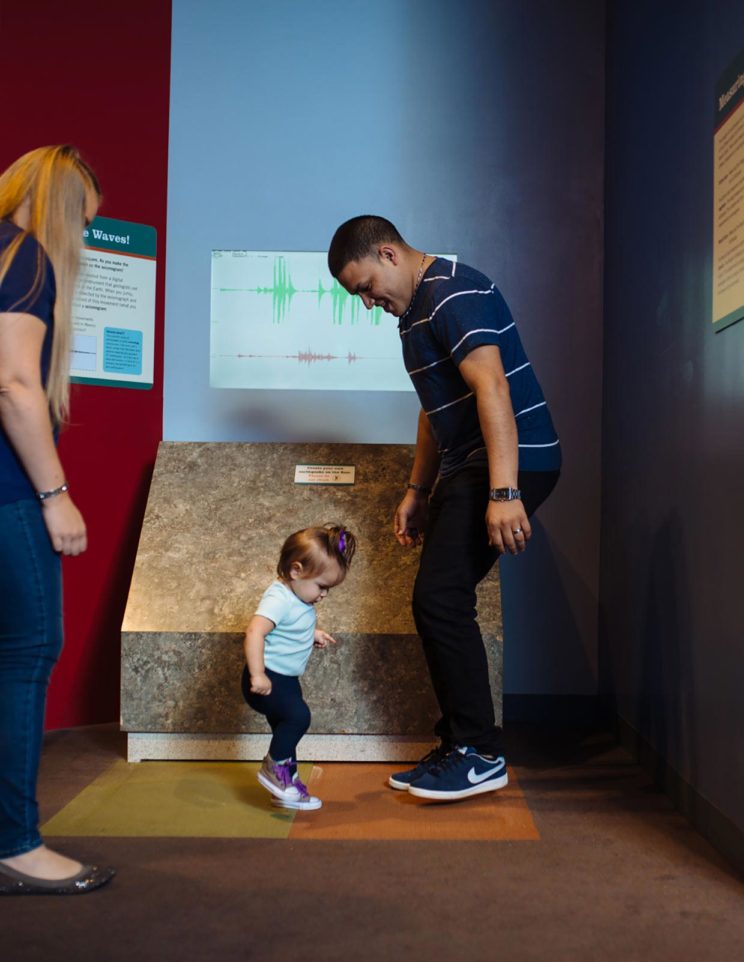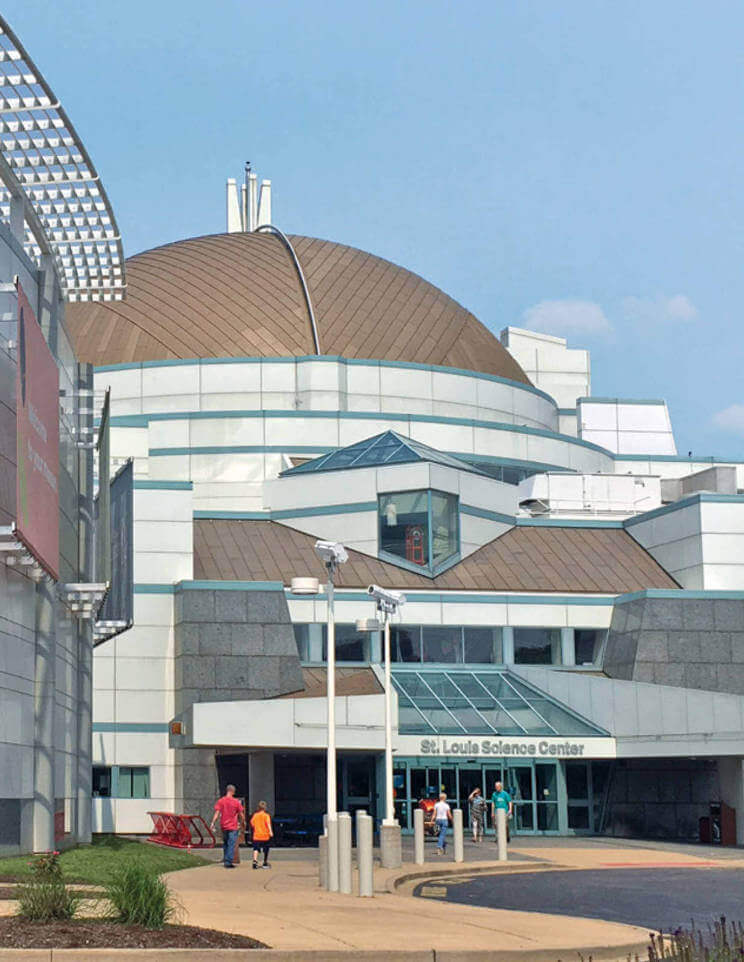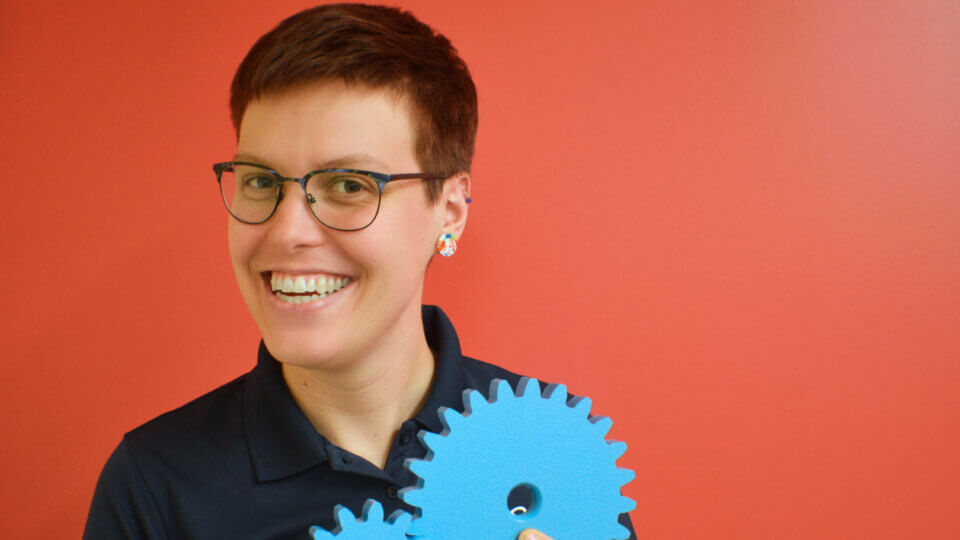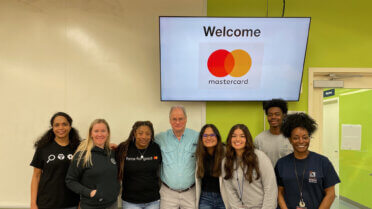Support science for our future. Make a gift to the Science Center’s Curiosity Fund to help support STEM education efforts in St. Louis.
Earlier this year, the Science Center welcomed a new face to lead the Youth Exploring Science (YES) Program’s Engineering component, Elizabeth (Elly) Walsh-Rock. We spoke with Elly (she/they) about her background in education, her experience as a recent finalist for the Carol B. and Jerome T. Loeb Prize for Excellence in Teaching Science and Mathematics, and what she hopes to bring to the YES Program’s Engineering component.
This interview has been edited and condensed for clarity.
Elly, can you tell us a little about your professional background and how you heard about the YES Program?
I’m a former Ferguson-Florissant school teacher, where I taught middle school and high school, and I also taught abroad in England for a semester. So, my background is in secondary education, teaching at different levels.
I had actually heard of the YES Program when I was a high school teacher, where I had a student who’d done the program for a year. I came to an outreach program at the McDonnell Planetarium when I was her freshman biology teacher, so that was my first exposure.
Even when I was a teacher, I thought the YES Program was outstanding, so it’s super exciting to be a part of it now because of the real, tangible outcomes that are coming out of this program and giving back not only to the St. Louis community, but also the wider area in the state and region.
What are some of the things you and the YES Teens in the Engineering component have been up to this summer?
We’ve been working with the Aerospace component to do our STEMtastic Camp, as well as some Pop-Up Science activities out in different areas of the community.
Today, we built parachutes with the kids, and as part of that we teach them to go through the engineering process—look at the materials, draw what you’re going to use, receive feedback, and try again. They build it, and then they test it. So, it’s a series of design challenges, and we’ll do parachutes, catapults, roller coasters. Really big things, which is part of what’s so fun.
It’s super cool to see kids making comments on each other’s designs, and even for those who science might not be their jam, it’s a different kind of science than they’ve done before. It’s amazing, and it’s super fun.
In 2021, you were a finalist for the Loeb Prize. Can you tell us a little about that experience?
It was humbling to be part of such an amazing group of educators. I was shocked when I got the phone call, but just getting to talk with Carol [Loeb] and also the previous Loeb Prize winners, the wealth of knowledge that was there in the Zoom room—because I went through the process during COVID—was amazing. It was one of the most incredible experiences I had while I was teaching.
So, it was amazing to be around educators who are really good at what they do, and to get the chance to talk to some of the previous winners as well.
What are some experiences or skills you’re hoping to bring to the YES Program?
I’ve had the privilege at each high school level to teach Project Lead the Way courses, which are all training- and work-based to provide students with training certifications, which is similar to what we do here [in the YES Program] with real work skills.
I’m coming with those experiences, but into a different content area. Already we’re working on bringing in new types of engineering—working with environmental engineering firms to talk about solar panels or biomedical engineering to talk about prosthetics, for example—to give the teens an understanding of what the field of engineering looks like and how many different ways they can work in that field.
As an educator and now in YES, how do you approach creating a learning environment that helps young people from diverse backgrounds really connect with STEM?
I believe deeply that classrooms and educational spaces must be inclusive and safe spaces for all students, especially around the explicit inclusion of students from marginalized communities.
With the [monetary] prize that I received for being a Loeb Prize finalist, I purchased some “We Believe…” flags for my classroom and other classrooms that clearly stated, “Science is Real,” “Black Lives Matter,” “Water is Life,” “No One is Illegal Here,” “Love is Love,” and “Women’s Rights are Human Rights”.
It is really important to have classrooms where kids feel safe and supported. For this reason, it was essential to spread the tenants of the “We Believe…” signs in classrooms to explicitly call out the expectations of human decency and respect that hopefully permeate throughout students’ lives long past their time in school and show them they are safe and heard in the classroom.
Your Support
Support from donors, Science Center members, and Supporting-level members is instrumental in helping the Science Center continue offering connections to science for everyone in our region. If you’d like to show additional support for our mission, please consider donating to the Science Center’s Curiosity Fund, becoming a member, or becoming a Supporting-level member.
Your Impact
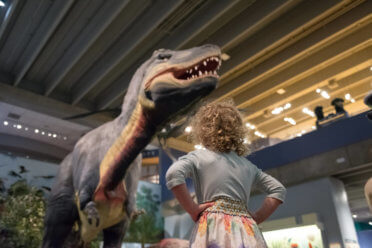
Want to learn more about how the Science Center and its supporters are making a difference for STEM learning in the St. Louis region?
